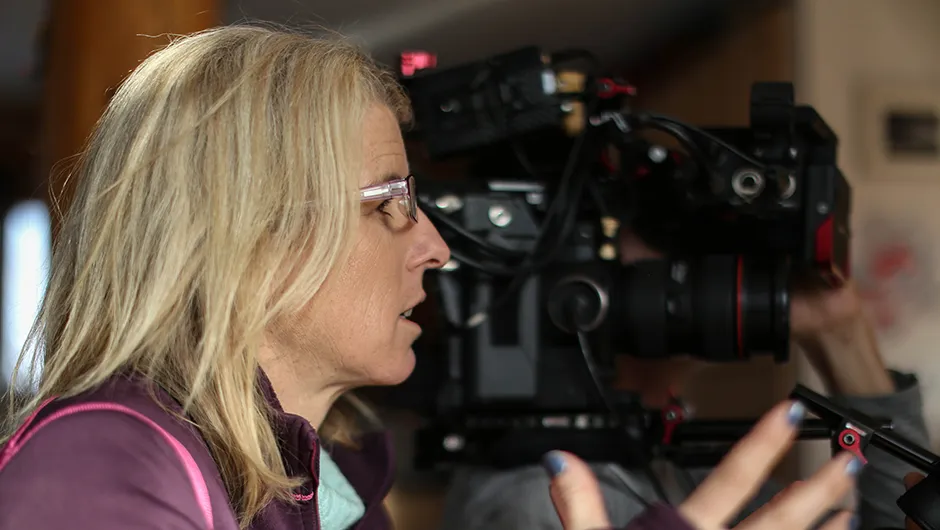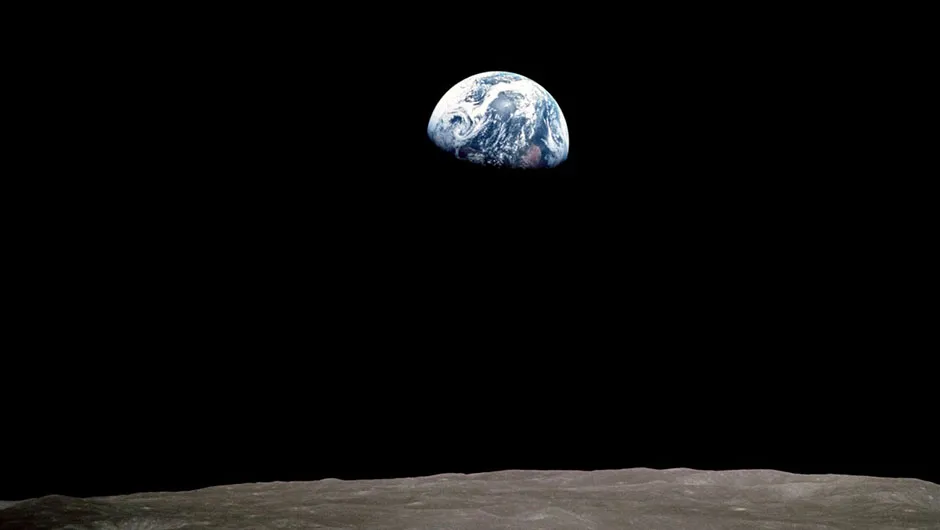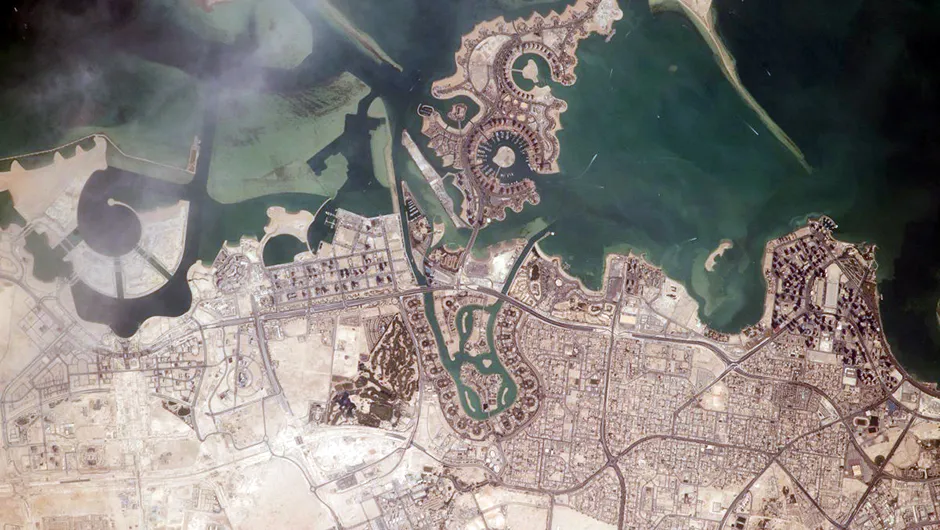Documentary filmmaker Rory Kennedy's latest work Above and Beyond is a look at the history of NASA following the Apollo missions. BBC Sky at Night Magazine had the opportunity to sit down and chat with the director, who is the niece of US President John F Kennedy, about the past, present and future of spaceflight.
It is 50 years since NASA began sending astronauts into space with the goal of setting human feet on the Moon.
The Apollo programme ended with Apollo 17 in 1972, but between then and now NASA and its international collaborators have launched telescopes into space, completed a tour of the Solar System, set down robotic rovers on Mars and built the International Space Station.
Perhaps most significantly, spaceflight has given us the ability to look back at our own planet and measure the effects of human activity, including in the form of climate change.
These threads are the crux of Above and Beyond, a new documentary by filmmaker Rory Kennedy that is premiering on the Discovery Channel on 14 October 2018.
The film looks at the history of NASA since Apollo, mixing the optimism of space exploration with a sobering look at the effects of climate change on our planet.
BBC Sky at Night Magazine met with Rory Kennedy to find out more.

Why did JFK decide to send astronauts to the Moon?
I think it was driven by the Cold War, and that was the context that enabled it to happen, but I think it was also about exploration.
I have spent a good amount of time listening to the Rice University speech that John F Kennedy gave in 1952 and it’s a really remarkable speech.
He talks about going to the Moon and getting there within a decade, and this is at a time when we didn’t have rocket ships or the knowhow to get beyond our atmosphere, land on the Moon and get back to Earth.
It was an audacious vision and wasn’t just about the Cold War.
There was something else there that I think was much bigger.
I think he was able through his words and natural leadership abilities to really galvanise the country and US Congress behind that idea.
At the height of the Apollo programme, NASA had five per cent of the country’s overall budget. Now it’s more like 0.5 per cent.
It was about getting the resources together, getting the public behind it, having a vision and, of course, NASA then had to actually do it: build the rockets, find the people who would fly in them, and all the risks that that entailed.
I think it’s a fantastic story and a beautiful moment in our nation’s history, but not just for our nation; for humankind.
In the film we focus on Apollo 8 a bit because there is a theme that the more NASA has travelled outward, the greater appreciation we’ve had for the uniqueness and vulnerability of this planet.
Apollo 8 saw the astronauts circumnavigate the Moon for the first time and Bill Anders took that amazing shot, which is known as Earthrise.
It was the first time that a person had taken a picture from space of our planet.
Showing this little ball against the vastness of space was so profound for people on Earth, and it was the beginning of that idea that Anders said: “We went to the Moon and we discovered Earth.”

Do you feel a familial connection to the Apollo programme?
I do. I feel a lot of pride because it was my uncle who led us towards those extraordinary accomplishments and so I feel a deep connection to it.
Part of the reason that I wanted to make this film is because I feel a great sense of loyalty to and appreciation for NASA, and feel it has not been recognised for its many accomplishments since Apollo in the way that I think it should.
It felt like a good opportunity to explore some of the things NASA has done over the past decades that people are maybe less aware of.
I’m old enough to have grown up during and in the aftermath of the Apollo programme, when there was a lot of excitement for what space exploration can be.
I felt that the younger generations didn’t have access to that, and this might be a way to help them understand that, and maybe inspire them a bit too.
Do you feel a sense of sadness at how abruptly Apollo ended, and the fact that we didn’t return humans to the Moon?
I don’t, because I feel like NASA has done so many other things that have been extraordinary, like the Voyager missions.
With its orbiters and fly-bys and landers, NASA has helped us understand more about the planets of our Solar System.
There was a time when we thought there could be aliens on Venus or Mars; we had no idea what was up there!
All we new was what we could see through a telescope, having to peer through Earth’s blurry atmosphere.
Innovations like the Hubble Space Telescope, for example, have taught us so much.
I love the deep-field image that was captured by Hubble in which they looked at one little spot in the sky about the size of your fingernail and found 10,000 new galaxies, leading to the revelation that there’s at least 100 billion galaxies out there, each of which host billions of stars.
But they’ve also been looking back down at Earth and helping us understand that climate change is real, it’s scientific, that Earth is warming because of the carbon we are releasing into the environment, and that we have the ability to do something about it, but we need to do it now.

Was it difficult to strike a balance between the subject of climate change and the recent history of NASA in the film?
The film was a bit of challenge because there are so many disparate stories, and so whether you’re talking about Hubble or Kepler or the Space Shuttle, or the Arctic missions on Earth, the satellites; they’re all disconnected except that they’ve all come about through NASA.
I didn’t find the Earth story was more challenging than making the whole film work as a story, but it was a challenge overall.
There are many ideas that are complex, so you have to remember that you’re making a film for audiences from different backgrounds and knowledge, and make sure you explain things in laymen’s terms.
Do you feel that we’re doing enough to combat climate change?
No I don't. NASA’s job is to give us data and information, which they’ve done, and also to give that information to our legislators and policy makers, which they’ve done, and it’s then the job of policy makers to change policy so that we are on a healthier course, which they are not doing.
My hope is that this film will help educate not just the policy makers, but the general public, and that if there’s a consensus that policy makers are not doing their job, that we can find new ones who will do their job.
Was it difficult to select specific points in NASA’s history to include in the story?
When I’m making a film like this, I’m trying to tell miniature stories with a beginning, middle and end, and characters, but I’m also trying to put a whole film together that’s doing the same.
Because NASA does have so many disparate campaigns and missions, we decided to look at the connection between our planet and their exploration outward.
Apollo 13, for example, is an interesting story, but Apollo 8 was more resonant because of the image of Earth that came out of it, and there was a sense that we were discovering Earth and so it better tapped into the themes in the film.
Are future plans to have Space X and Boeing lift off American astronauts from American soil a return to the glory days of Apollo and the Shuttle?
There are a lot of people in our country who aren’t even aware that we go up to space in the Russian Soyuz rocket, and I think there is not a lot of attention paid.
Whereas if it’s Space X lifting off in the United States with American astronauts, it would naturally garner more attention.
I think it’s nice the idea of the United States being able to send our astronauts up in our own rockets.
That said, I think it’s been a wonderful relationship between the US and Russia.
They’ve had their own challenging relationship, but our astronauts get on very well with each other, and I think that says something meaningful too.
For more cosmic cinema, read our guide to the best space movies of all time.
Iain Todd is BBC Sky at Night Magazine's Staff Writer.
